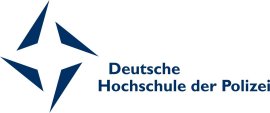Deutsche Hochschule der Polizei (Coordinator), Münster
Being a central University providing senior police training and police further training to the senior police services of the Federation and the Federal states throughout Germany, the Deutsche Hochschule der Polizei - DHPol (hereinafter referred to as 'German Police University' or 'University') is located in a Southern part of Münster, the suburb of Hiltrup.
The German Police University was founded in 2006. Its predecessor institutions, the 'Polizei-Führungsakademie', and the 'Polizeiinstitut Hiltrup' have been located at this place since the mid 40s of last century.
The University seeks to become the most important forum for providing linkage between academic science and practical policing, thus forming an arena for the discussion of relevant policing subjects in Germany.
Organisation
The German Police University is headed by a President and is split into 14 academic faculties. These faculties are linked by the 'Central Office for Education, Further Training and Research'.
Added to these are the organisational unit 'International Relations' and the Institute for Police Technology. The units 'University Development' and 'University Administration' provide support to the core processes of the University.
Mission statement
In a common approach with the Corporate Communication Institute of the Fachhochschule Münster (University of Applied Sciences) we developed the German Police University mission statement. The mission statement has been complemented with the University profile. The University development scheme is soon to follow.
Mission statement of the German Police University
- This University serves the benefits of senior police officers and is the most important forum between science and practice, encouraging the discussion of policing subjects in Germany.
- We play a key role in the systematic development of police science in research, education and studies and we impact on further improvements of police work.
- The close interlinking between science and practical policing makes sure that senior police officers receive broad professional qualifications, job skills and capabilities.
- We stand up for an open-minded, value-bound police service that is aware of its responsibilities in a democratic constitutional state, in the area of maintaining freedom, security and public order and safety.
- We play a partnership role in the cooperation with regional, national and international educational and scientific research institutions, and actively encourage a common European police philosophy.
- We consider ourselves as team players. We live in a quality-based culture and constantly develop the University further on, aimed at reaching top level quality in education, studies, scientific research and services.
Core values
Trend-setting, open-minded, integrative, value-driven
Joachim Kersten
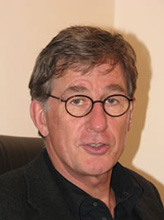 Univ.-Prof. Dr. Joachim Kersten, Head/Chair of Police Science German Police University will serve as the coordinator and the principal investigator for the research in Germany. He has more than ten years international experience in research and teaching. He has taught at universities in Germany and as a guest Professor in Zurich, as graduate student in Canada, Senior Lecturer in Criminology (DAAD) in Melbourne Australia, as Asahi Fellow in Tokyo, as Resident Director of the Rikkyo European Studies Program at the Rijksuniversiteit Limburg in Maastricht, and as DAAD Professor for Political Science/German at Northwestern University in Evanston, IL. (Chicago). He has received fellowships from DAAD (German Academic Exchange), DFG (German Research Foundation), Asahi Fellowship, and the Australian Research Council. He has published books and journal articles on gender (masculinity), culture and social control/criminal justice/policing, gender and violence, which are quoted widely. He has been the task leader for EU UNICRI projects (EUSEC, EUSECII) and is partner in the EUFP 7 GODIAC project of the National Police Board of Sweden. He is a member of the CEPOL Research and Science Working group and has been active in CEPOL courses including TOPSCOP and CEPOL Research and Science Conferences.
Univ.-Prof. Dr. Joachim Kersten, Head/Chair of Police Science German Police University will serve as the coordinator and the principal investigator for the research in Germany. He has more than ten years international experience in research and teaching. He has taught at universities in Germany and as a guest Professor in Zurich, as graduate student in Canada, Senior Lecturer in Criminology (DAAD) in Melbourne Australia, as Asahi Fellow in Tokyo, as Resident Director of the Rikkyo European Studies Program at the Rijksuniversiteit Limburg in Maastricht, and as DAAD Professor for Political Science/German at Northwestern University in Evanston, IL. (Chicago). He has received fellowships from DAAD (German Academic Exchange), DFG (German Research Foundation), Asahi Fellowship, and the Australian Research Council. He has published books and journal articles on gender (masculinity), culture and social control/criminal justice/policing, gender and violence, which are quoted widely. He has been the task leader for EU UNICRI projects (EUSEC, EUSECII) and is partner in the EUFP 7 GODIAC project of the National Police Board of Sweden. He is a member of the CEPOL Research and Science Working group and has been active in CEPOL courses including TOPSCOP and CEPOL Research and Science Conferences.
Catharina Decker
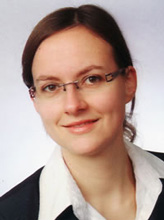 Catharina Decker is a psychologist. She works as a research fellow in the COREPOL project at the German Police University (DHPol). Her main subject of interest is related to respect matters in work relationships, which she already investigated in former projects at the DHPol.
Catharina Decker is a psychologist. She works as a research fellow in the COREPOL project at the German Police University (DHPol). Her main subject of interest is related to respect matters in work relationships, which she already investigated in former projects at the DHPol.
Ansgar Burchard, M.A. - Scientific assistant
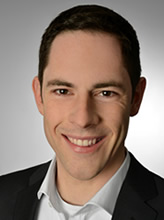 I am a Senior Researcher and Ph.D. Candidate at the German Police University in Muenster/Germany (Police Science Department). My M.A. Thesis was about International Police Missions of German Police Officers. My main COREPOL tasks are content-related work, administrative and organisatorial duties.
I am a Senior Researcher and Ph.D. Candidate at the German Police University in Muenster/Germany (Police Science Department). My M.A. Thesis was about International Police Missions of German Police Officers. My main COREPOL tasks are content-related work, administrative and organisatorial duties.
Navina Kunz
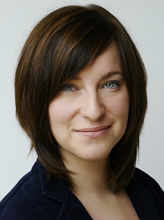 Navina Kunz, M.A., is a sociologist and criminologist who has been working in the field of police science at the DHPol for the last 2,5 years. She is involved in the project “Corepol” and is focusing on the topic police oversight. Besides working as a researcher at DHPol, Navina Kunz was involved in the UNICRI-project “The European House of Major Events Security”. Moreover she was responsible for the organization of the CEPOL European Police Research and Science Conference 2013 in Münster, Germany.
Navina Kunz, M.A., is a sociologist and criminologist who has been working in the field of police science at the DHPol for the last 2,5 years. She is involved in the project “Corepol” and is focusing on the topic police oversight. Besides working as a researcher at DHPol, Navina Kunz was involved in the UNICRI-project “The European House of Major Events Security”. Moreover she was responsible for the organization of the CEPOL European Police Research and Science Conference 2013 in Münster, Germany.



